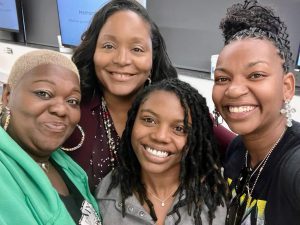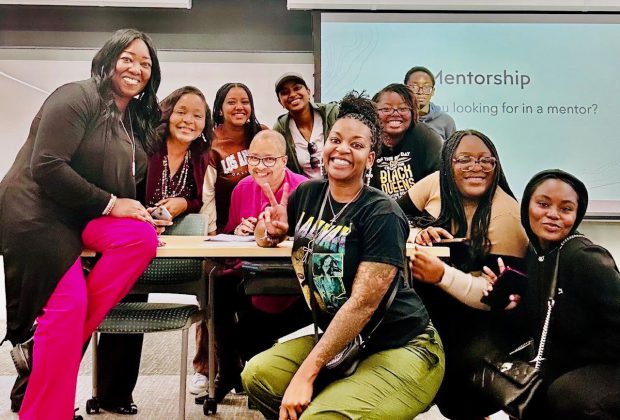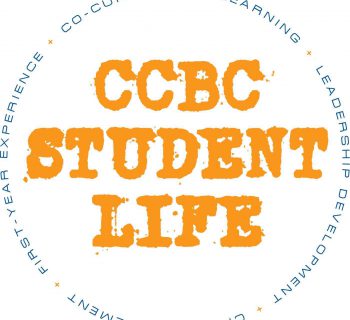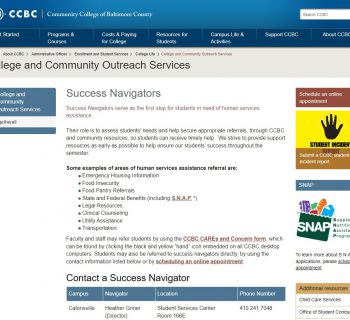The writer of this article was part of a summer honors experience: Voices From Our Backyard: Local News Narratives during which students created and wrote stories to be published in community news outlets.
Ayanna Hasselberger
For decades, women of color have faced unique challenges in higher education, from underrepresentation to a lack of resources tailored to their specific needs. Recognizing these barriers, a new initiative has emerged to empower minority women and those who identify as women of color, offering them the support, mentorship, and opportunities they need to thrive. 
This August 2024, at the beginning of CCBC's Fall semester, the Female Student Success Initiative (FSSI) launched on all CCBC campuses. Spearheaded by Deans Monica Walker and Adrianne Washington, alongside Professors Jewel Jackson, Denise Parker, and Latonya Dyett, this initiative is dedicated to supporting female students of color in their academic and personal journeys.
Modeled after the Male Student Success Initiative, FSSI will offer mentorship, advising, tutoring, professional development, and enrichment activities to foster student retention and success. This program aims to create a robust support system, enhancing the retention rates and overall success of women of color enrolled in highly populated programs at CCBC.
“With the success of MSSI, organizers began to think about how we can support our students who identify as women of color in a similar manner, providing both academic and non-academic support,” Dean Walker explained.
The Female Student Success Initiative (FSSI) was born out of a commitment to address the unique challenges faced by women of color at the Community College of Baltimore County (CCBC). In 2021, Deans Monica Walker and Adrianne Washington, with the support of a President’s Innovation Grant from the Teaching Learning Roundtable, began laying the groundwork for this vital program which, they explained, is grounded in a commitment to equity and inclusion, and aims, not only to increase graduation rates but also to cultivate leadership skills, foster community, and ensure that women of color are prepared to succeed both academically and professionally. This initiative is paving the way for a more inclusive and supportive educational environment through personalized resources and a strong network of allies.
Recognizing the success and impact of the Male Student Success Initiative (MSSI), which has been instrumental in supporting men of color at CCBC, Deans Washington and Walker sought to create a similar program tailored to the needs of minority women and those who identify as women of color. To ensure that the FSSI would be both effective and meaningful, the two deans established an advisory committee to explore the best practices in mentorship and academic enrichment. 
“Back in October of 2023, Dean Washington and I co-facilitated a focus group,” Dean Walker recounted. “We invited students who were interested in learning more about the initiative to give us feedback on what they'd be looking for in a mentoring program and some of the other enrichment activities.”
Their research involved gathering insights from advisory committee members about mentorship, analyzing retention data for minority female students at CCBC, and studying successful program models for leadership development. Dean Walker also emphasized the motivation behind FSSI, noting, “After looking at the data on student success outcomes, we saw there was a great opportunity for us as an institution to do more to support women of color.” This comprehensive approach led to the development of the Women of Excellence in Education Initiative, designed as a counterpart to MSSI.
While MSSI has focused on empowering men of color through a holistic support system that includes programs, activities, and events, FSSI aims to provide a similar framework for women of color. Branden Burrows, a recent CCBC graduate, shares his experience with the Male Student Success Initiative, emphasizing its profound impact on his career trajectory.
“MSSI has helped me with internships with CareFirst for the past two years now and looking for full-time work with them. They have helped me with networking and building up my resume and experience. Getting ready for the world after graduation, MSSI builds men to become their best version of themselves and have access to opportunities to benefit their future, whether it's academics, internships, scholarships, or making friends," Burrows said.
By drawing on the proven strategies of MSSI and tailoring them to the experiences of women of color, FSSI is poised to make a significant impact on the academic and personal growth of its participants.
As the Female Student Success Initiative (FSSI) prepares to launch, it is already generating excitement among CCBC students and alumni. Taylenn Knight, a digital forensics major transferring to the University of Baltimore this fall, and Calise Harper, a marketing major heading to Towson University, both expressed strong interest in the program.
When asked if they would have joined a program designed by and for women of color during their time at CCBC, their responses were immediate and enthusiastic: "Absolutely," said Harper, while Knight echoed with a resounding "100%." For Knight, the prospect of such a group is not just about academic support but about finding a community that understands and uplifts.
Harper shared this sentiment, emphasizing the importance of being involved in a space where women of various backgrounds can come together, creating a "community of culture." Both students see FSSI as more than an opportunity; they view it as a vital community that fosters growth and belonging. Knight’s previous inquiries about a program like FSSI underscore the overwhelming interest and need for such an initiative, reflecting the deep desire among women of color for spaces that nurture their academic and personal development.
As the Female Student Success Initiative (FSSI) launches this Fall at CCBC, there is a shared sense of hope and anticipation for its impact on women of color across the CCBC campuses. The enthusiasm from students like Knight and Harper highlight the deep need for such spaces where women of color can find both support and a sense of belonging. Looking ahead, there is great optimism that FSSI will not only enhance student retention and success but also inspire future growth, potentially expanding its reach and influence within the CCBC community and beyond.













